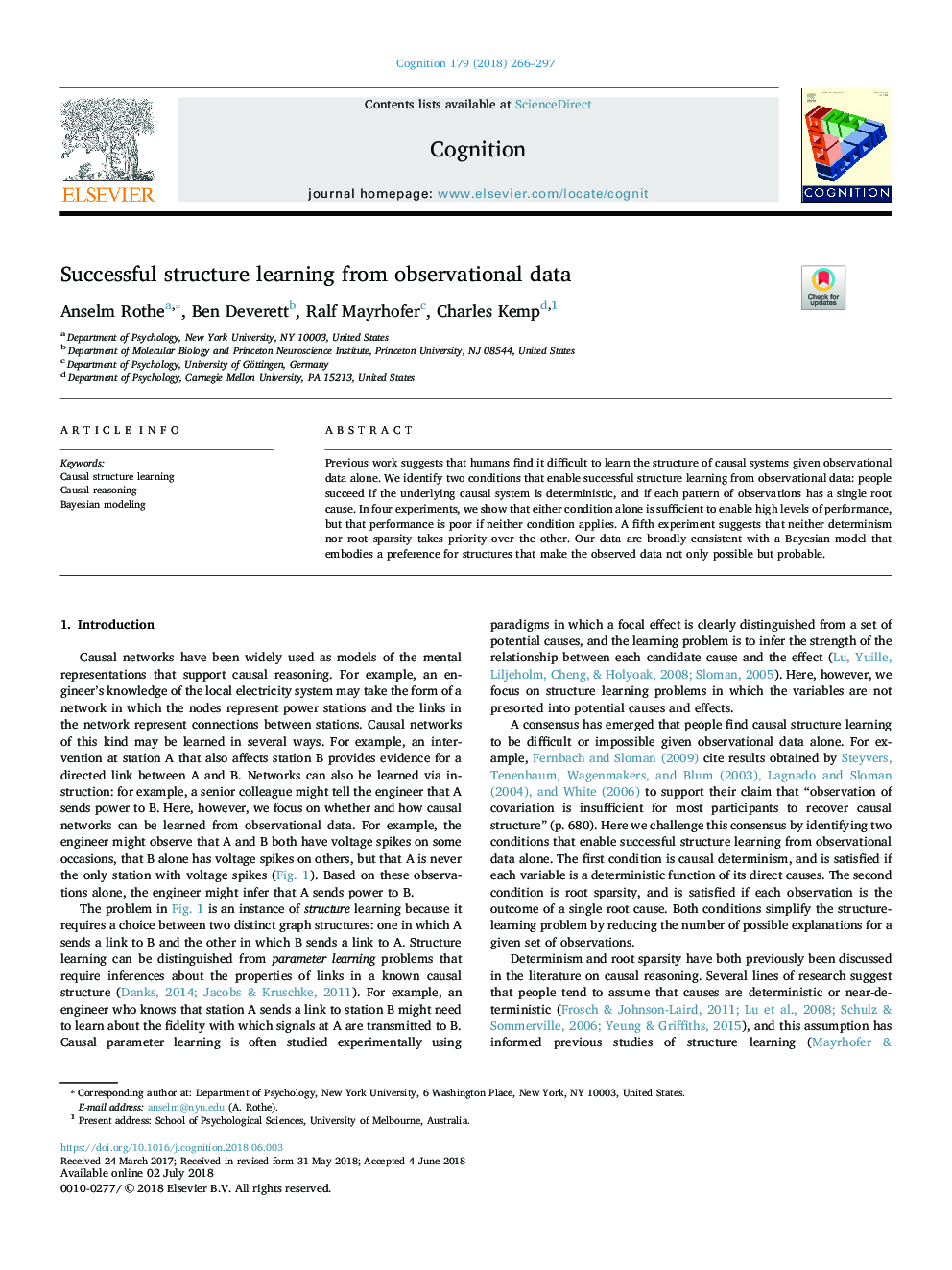| Article ID | Journal | Published Year | Pages | File Type |
|---|---|---|---|---|
| 7285200 | Cognition | 2018 | 32 Pages |
Abstract
Previous work suggests that humans find it difficult to learn the structure of causal systems given observational data alone. We identify two conditions that enable successful structure learning from observational data: people succeed if the underlying causal system is deterministic, and if each pattern of observations has a single root cause. In four experiments, we show that either condition alone is sufficient to enable high levels of performance, but that performance is poor if neither condition applies. A fifth experiment suggests that neither determinism nor root sparsity takes priority over the other. Our data are broadly consistent with a Bayesian model that embodies a preference for structures that make the observed data not only possible but probable.
Keywords
Related Topics
Life Sciences
Neuroscience
Cognitive Neuroscience
Authors
Anselm Rothe, Ben Deverett, Ralf Mayrhofer, Charles Kemp,
